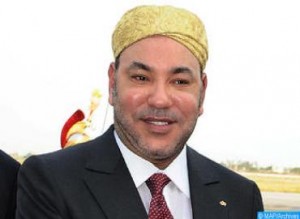All Africa
Maghreb Arabe Presse (Rabat)

HM King Mohammed VI inaugurated, Tuesday in the El Argoub municipality (southern province of Oued Ed-dahab), the “Azura Aquaculture” farm.
This aquaculture project, which required an overall budget of 81 million dirhams, is part of the national Halieutis strategy, developed in accordance with the high guidelines of HM the King and aimed at upgrading the different stages of the value chain of the fisheries sector and improving its competitiveness and performance.
Besides the socio-economic development of the local region, the project will contribute to improve the sustainability of resources, promote farming, processing and marketing of nearly 970 tons of oysters, clams and abalone, and to decrease animal health risks related to the import of these species.
Featuring state-of-the-art equipment, “Azura aquaculture” houses notably a two-hectare farm boasting facilities for water filtration, phytoplankton production, spawning and fertilization, a laboratory, a micro-nursery area and a nursery.
This project is part of the aquaculture development plan in the Dakhla-Oued Ed-dahab region (2015-2020), one of the flagship projects of the new development model of the southern provinces, launched by the Sovereign on the occasion of the fortieth anniversary of the Green March.
This regional aquaculture development plan provides for the establishment, for a total investment of 2.8 billion dirhams, of 878 production units over three identified geographical areas, namely the Bay of Dakhla (520 units), the Bay of Cintra (243) and the area between these two bays (115).
Expected to generate some 3,350 direct jobs, these projects suprevised by the National Agency for Aquaculture Development (French acronym ANDA) will be carried out over an area of 6,556 hectares and will eventually reach a total annual production of 115,450 tons.
These various aquaculture projects reinforce the Halieutis plan that aims to make the fisheries sector a real engine for the sustainable growth of the national economy and increase its contribution to GDP to 21.9 billion dirhams by 2020 and generate some 115,000 direct jobs.







